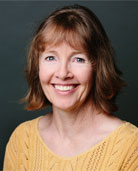Books for Educators

Contemporary Canadian Picture Books:
A Critical Review for Educators, Librarians, Families, Researchers & Writers
“ …an excellent service to the many people associated with and interested in Canadian children’s literature … an invaluable, up-to-date resource ….The passion with which Brenna, Dionne, and Tavares have approached their work is obvious. They are to be commended on their achievement. Highly recommended. 5/5 stars.”
—Dr. Gregory Bryan, CM Magazine

Stories for Every Classroom:
Canadian Fiction Portraying Characters with Disabilities
“Brenna is bringing into the light a topic that is often avoided, bringing into focus students who are so often marginalized and misunderstood…. This book helps readers to overcome stereotypes and moves us into understanding rather than avoiding this very important sector of our school population.”
—Joyce Bainbridge, Faculty of Education, University of Alberta
“Brenna has written an important book in Stories for Every Classroom. She navigates the growing field of literature on dis/ability with eloquence and passion. It is a book that will be treasured by teacher educators, teacher candidates, and teachers alike.”
— Cam Cobb, Faculty of Education and Academic Development, University of Windsor
“With its examination of Canadian fiction portraying characters with disabilities, Stories for Every Classroom addresses a significant gap in the literature. Bev Brenna expertly integrates historical context and theoretical orientation with rich descriptions of picture books and novels for children and young adults. Rather than the traditional uni-dimensional portrayals of characters with disabilities, the author highlights characters who have a multiplicity of traits. The additional features of author profiles, annotated bibliographies, and read-on lists make this a must-read for in-service and pre-service teachers, as well as for teacher educators and educational researchers.”
—Lynne Wiltse, Faculty of Education, University of Alberta
